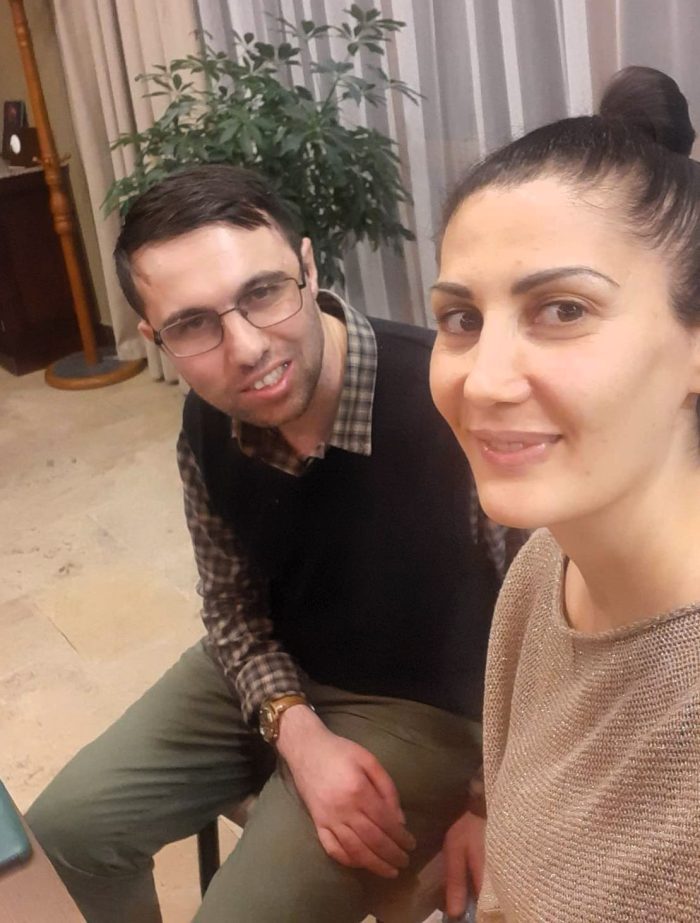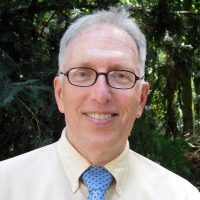In Nagorno-Karabagh, a region known to Armenians as Artsakh, war has been a fact of life for thirty years. Over time, bloody clashes reignited tensions in the region bordering Armenia and Azerbaijan, causing widespread damage and many casualties. Continued attacks and a ten-month blockade of food, fuel, and medical supplies drove the population of 120,000 Armenians into a perpetual state of trauma and Post-Traumatic Stress Disorder, or PTSD.
In September 2023, Azerbaijani forces launched a new offensive and took control of the region, leading to a mass exodus of ethnic Armenians. Rather than risk ethnic cleansing, Armenians are leaving historic lands that date back centuries. A major humanitarian crisis is unfolding as thousands become homeless with no prospect of returning.
ArmeniaRecoveryNow yields rapid results
Recognizing a growing need for evidence-based recovery from trauma, the ArmeniaRecoveryNow project has been on the ground in Armenia since 2021, bringing relief from the stress of endless war by teaching the Transcendental Meditation® (TM®) program free of charge. A letter from the Armenian Ministry of Health has said “TM is good for mind and body.” Founded by TM teachers, the project has taught more than 1,000 Armenians in the past two years, with financial support from the David Lynch Foundation Caucasus and Alliance for PTSD Recovery.
Now, with the massive exodus coming into Armenia, there is an even more critical need to relieve trauma and bring healing to the nation. ArmeniaRecoveryNow is ready to help anyone from Artsakh with free support through the TM program.
Consistent, daily practice of the TM technique can provide the kind of results described in these survivors’ testimonials.
Narek, a 20-year-old veteran of several battles, came out of the conflicts in shock and had recurring “torturing memories” of his experiences. Within ten days of learning the TM technique, he told us, “Transcendental Meditation helped me to get rid of torturing memories and I have a feeling of inner peace.”
Nane, who lived only miles from the conflict zone along the border, was plagued by fears and recurring negative thoughts. She was stressed by the constant threat to her home and was often overwhelmed by fatigue. After a week of TM practice, Nane said, “Since learning Transcendental Meditation, my clinging, repeating negative thoughts and fears have decreased. Every time I do this meditation, I feel like I am getting rid of old fears, fatigue, tension, and stress. I feel very calm. This technique works very quickly. I’m feeling the positive effect of TM very rapidly.”
A 32-year-old veteran also named Narek explains, “I fought in September 2022 when Azerbaijanis attacked several posts in Armenia, including my post in the Vardenis area. I developed insomnia and both mental and physical problems from my service, and aggressive behavior towards those around me.” The TM program brought Narek relief: “I’ve been practicing TM twice a day for about 3 months now. The first change I felt was more regular sleep. Now, my aggressive behavior has started to lessen and sometimes disappears completely. I recommend that everyone learn this technique to live peacefully and harmoniously with yourself and the world around you.”
How and why TM works
There are more than 400 peer-reviewed studies on the effects of the TM technique. Fourteen controlled studies that focused specifically on PTSD consistently demonstrate how TM practice rapidly relieves the symptoms of stress-induced conditions among displaced people, veterans, students in stressful areas, first responders, and prisoners around the world.
See chart summarizing the 14 peer reviewed scientific studies on TM and PTSD Reduction
The TM technique yields noticeable improvements in PTSD. Many study participants, including military personnel and displaced persons, fell below the PTSD threshold in self-report tests within 30 days.
One of the unique strengths of the TM program is that it is “non-trauma facing”—that is, the subject does not need to relive his or her stressful experiences to make progress. Regular TM practice allows the mind and nervous system to release the “fight or flight” response that underlies PTSD, leading to a more peaceful inner experience in which fear and anxiety are minimized.
Those who learn TM through the ArmeniaRecoveryNow project now have the opportunity to evaluate their progress by taking the Post-Traumatic Stress Disorder Checklist 5 before learning, and again in 30 days, to self-report the changes they experience.
Looking ahead
The practice of TM has made a remarkable difference in the lives of Armenians in the conflict zones. Now, with a much greater population in need, the ArmeniaRecoveryNow project will teach the TM technique free of charge to more people newly displaced by war. Alliance for PTSD Recovery is expanding its outreach to inform the public of these resources and raise additional funding for the program.
As it is said, “Save a life and save the world.” ArmeniaRecoveryNow hopes to save the world of each Armenian suffering under the immense stress of war and homelessness by teaching TM, the same simple, evidence-based technique practiced by over ten million people from almost every nation around the world.
To learn more about this humanitarian project, go to aptsdr.org/Armenia.
Arlene Hovanessian Denison
David Shapiro
About the authors:
Arlene Hovanessian Denison
B.A., dual major in Linguistics and Sociology from New York University. She has enjoyed a long career in marketing communications, most recently with Kaiser Permanente, and has experience in content development, graphic design, and project management. She is a second generation Armenian-American whose grandparents survived the Genocide. Arlene is now retired and enjoys writing in support of charitable causes.
David Shapiro
Founding President of Alliance for PTSD Recovery, B.A. cum laude Chemistry, Carleton College; M.A. Philosophy, M.I.U.; co-author of two studies related to the TM program on PTSD and refugees published in Journal of Traumatic Stress (April, 2013; February, 2014), and a third study on PTSD in students published in Psychological Reports (February, 2019). He has designed and managed social change and wellness projects ranging from local clinics to national ballot access programs. He is a 40 year participant in specialized study and practice of the TM program. Founder of PTSD Relief Now Corporation and its African PTSD Relief projects.
 Share on bsky
Share on bsky






Read 0 comments and reply